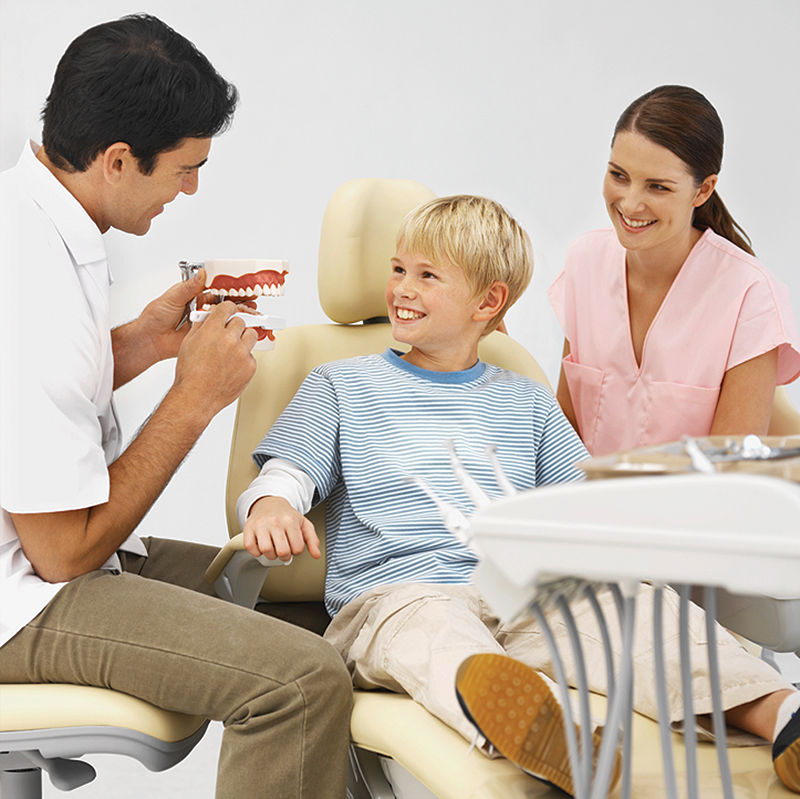Routine dental examinations and cleanings are an important component of oral healthcare for both children and adults. However, many children do not visit the dentist until well after the time recommended by medical and dental professionals. Parents may be unaware of the dental health timeline, or they could be reluctant to bring their children for fear of how their kids will behave – especially if parents are harboring their own apprehensions about the dentist.
The American Academy of Pediatric Dentistry recommends that a child go to the dentist by age 1, or within six months of the eruption of his or her first tooth. Yet, according to a survey commissioned by Delta Dental Plans, the average age of a child’s first dental visit is 2.6 years.
Parents worried about how their kids will respond to the dentist can take the following steps to acclimate kids to dental visits to make them more comfortable during their appointments now and down the road.
· Be a positive role model. Children frequently learn by example. If they see their parents being diligent about dental care, they’re more likely to embrace proper oral hygiene. Bring children to your own dental appointments so they understand the process and become familiar with the type of equipment used.
· Stick to the first-tooth milestone. Take your child to the dentist on or about when his or her first tooth erupts. Early dental visits will get kids used to going to the dentist and prevent minor problems that may lead to more complex dental issues.
· Read books about the dentist and role play. Information can allay kids’ fears about the dentist. Read books together about dental visits and act out possible scenarios with your kids. Give kids toy dental health tools and have them practice exams on you and vice-versa.
· Be supportive and instill trust. Avoid telling your child that everything will be okay. If a procedure is needed, this could affect his or her trust in you and make the dental office an even greater source of anxiety. Simply be supportive and offer a hand to squeeze or a hug if your child needs you.
· Consider using your dentist. Some parents like to take their children to a pediatric dentist, but it may not always be necessary. Many family practices cater to patients of all ages, and the familiarity of the office may help make children feel more comfortable. Speak with your dentist about the ages they see.
· Steer clear of negative words. Michael J. Hanna, DMD, a national spokesperson for the AAPD, suggests using positive phrases like “clean, strong, healthy teeth” to make the visit seem fun and positive rather than scary and alarming. Let the office staff come up with their own words to describe processes that won’t seem too frightening.
By employing these techniques, kids’ dental visits can be more pleasant for all involved, paving the way for a lifetime of healthy teeth.
MEDICAL FOCUS: Help kids feel comfortable at the dentist

Dentist
